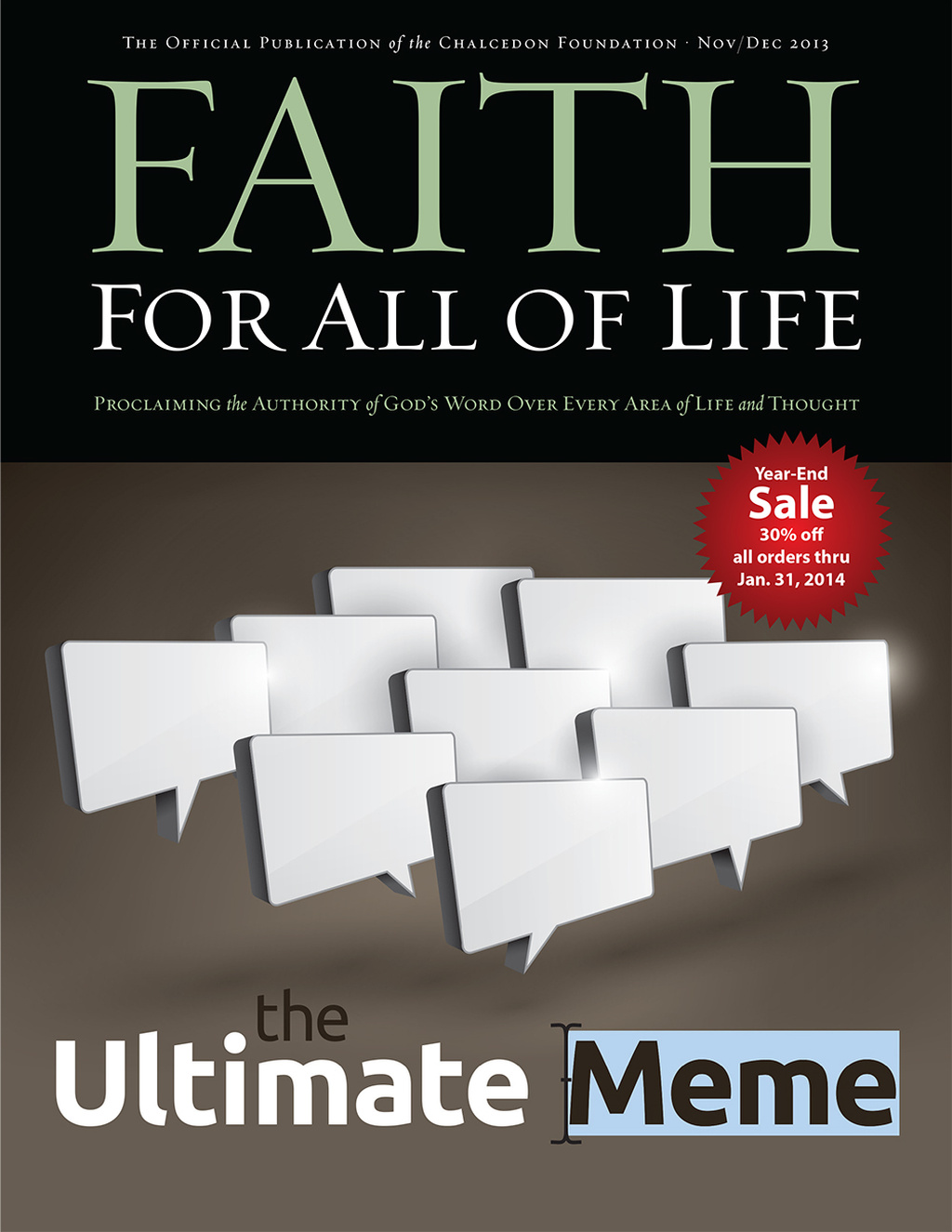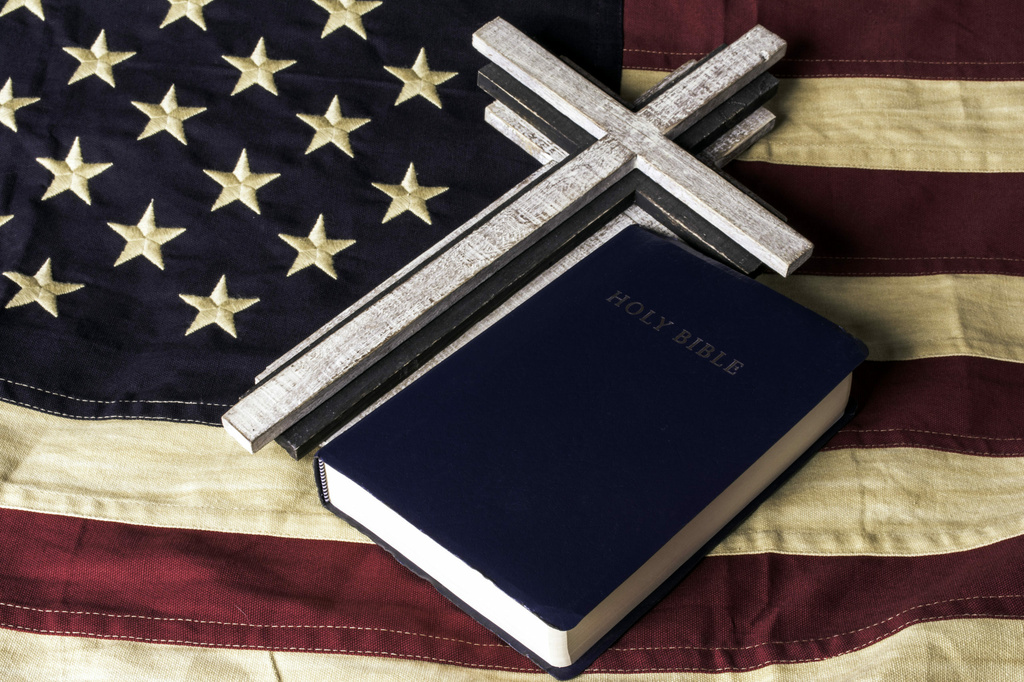
Magazine Issue
November/December 2013 Articles:

How Liberty is a Result of the Gospel

- Mark R. Rushdoony

The Ultimate Meme

- Martin G. Selbrede
Economics, Law and Liberty
- Paul Michael Raymond
Biblical Spirituality vs. Gnostic Spirituality

Learn It; Live It; Teach It

- Andrea G. Schwartz

The Lion's World: A Journey into the Heart of Narnia

- Lee Duigon
Infallible Man

- R. J. Rushdoony
Mary's Song

- R. J. Rushdoony